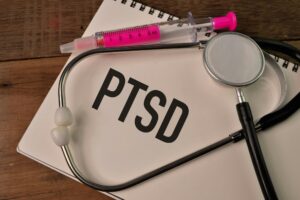Narcissistic abuse, often shrouded in confusion and disbelief, leaves deep emotional scars. Women, as victims, frequently endure manipulation, control, and psychological harm that takes considerable effort and time to heal from. Many women dont realize that they are being mistreated. They will often misconstrue the attention from the Narcissist to make it seem like they are actually in a healthy relationship. There is a type of transition that the woman may go through from being in love due to love bombing but when they are able to share the relationship aspects with others, it is then when they may get a dose of reality. This blog delves into what narcissistic abuse entails, its impact, and the path toward recovery, supported by references from credible sources.
What is Narcissistic Abuse?
Narcissistic abuse stems from a relationship with someone who has Narcissistic Personality Disorder (NPD) or narcissistic traits. These individuals exhibit an excessive need for admiration, a lack of empathy, and a deep-seated sense of entitlement. Narcissistic abuse is characterized by:
- Manipulation: Using tactics like gaslighting to make the victim doubt their reality.
- Control: Dominating various aspects of the victim’s life, from finances to personal decisions.
- Emotional Abuse: Constantly belittling, criticizing, and undermining the victim’s self-worth.
- Misinterpretation: Individuals with narcissistic tendencies are seen or viewed as having self confidence. Narcissistic individuals will often focus on themselves and will achieve their needs at all costs.
The Aftermath of Narcissistic Abuse
The aftermath of narcissistic abuse can be devastating. Women, in particular, may face a range of emotional and psychological issues, including:
- Loss of Self-Esteem: Continuous criticism and belittlement can erode a woman’s self-confidence and self-worth.
- Anxiety and Depression: The chronic stress and emotional turmoil can lead to persistent anxiety and depression.
- Post-Traumatic Stress Disorder (PTSD): Many women experience symptoms akin to PTSD, including flashbacks, nightmares, and severe anxiety.
- Isolation: Abusers often isolate their victims from friends and family, leaving them without a support network. Individuals will find it difficult to explain and express their situations to others for fear of the Narc finding out.
- Trust Issues: After enduring manipulation and deceit, victims may struggle to trust others, affecting future relationships.
- Deep Denial: There is a lack of understanding of denial seemingly believing that this type of relationship is perfect and ideal.
Healing and Recovery
Recovering from narcissistic abuse is a multifaceted process that requires time, support, and professional help. When individuals are working through healing or recovering from the stronghold of the Narc, they will also transform from the debilitating effects of the person who has been in control of them Here are key steps to recovery:
- Acknowledgement: Recognizing the abuse and its impact is the first step toward healing at times the abused may need the insight of others.
- Seeking Professional Help: Therapy, particularly with a counselor experienced in narcissistic abuse or other issues related to personality disorder, can provide the necessary support and strategies for recovery.
- Building a Support Network: Reconnecting with trusted friends and family members can offer emotional support and reduce feelings of isolation.
- Self-Care: Engaging in activities that promote physical and emotional well-being, such as exercise, hobbies, and mindfulness practices. At times getting back into community and family may help the person to relearn who they are to be able to heal completely.
- Education: Learning about narcissistic abuse and its effects can empower victims and help them understand that the abuse was not their fault.
Personal Stories and Shared Experiences
Many women have found solace and strength in sharing their experiences with others who have gone through similar situations. Online support groups and forums can provide a sense of community and understanding. Books, podcasts, and articles on narcissistic abuse can also offer valuable insights and validation.
References
- Psychology Today – “Understanding Narcissistic Abuse” by Shahida Arabi
- Arabi, S. (2017). Understanding Narcissistic Abuse. Retrieved from Psychology Today.
- Mayo Clinic – “Narcissistic Personality Disorder”
- Mayo Clinic. (2021). Narcissistic Personality Disorder. Retrieved from Mayo Clinic.
- National Domestic Violence Hotline – “Emotional and Psychological Abuse”
- National Domestic Violence Hotline. (n.d.). Emotional and Psychological Abuse. Retrieved from The Hotline.
- Journal of Interpersonal Violence – “The Impact of Narcissistic Abuse on Women’s Mental Health”
- Smith, M., & Cross, D. (2018). The Impact of Narcissistic Abuse on Women’s Mental Health. Journal of Interpersonal Violence, 33(12), 1962-1980.




